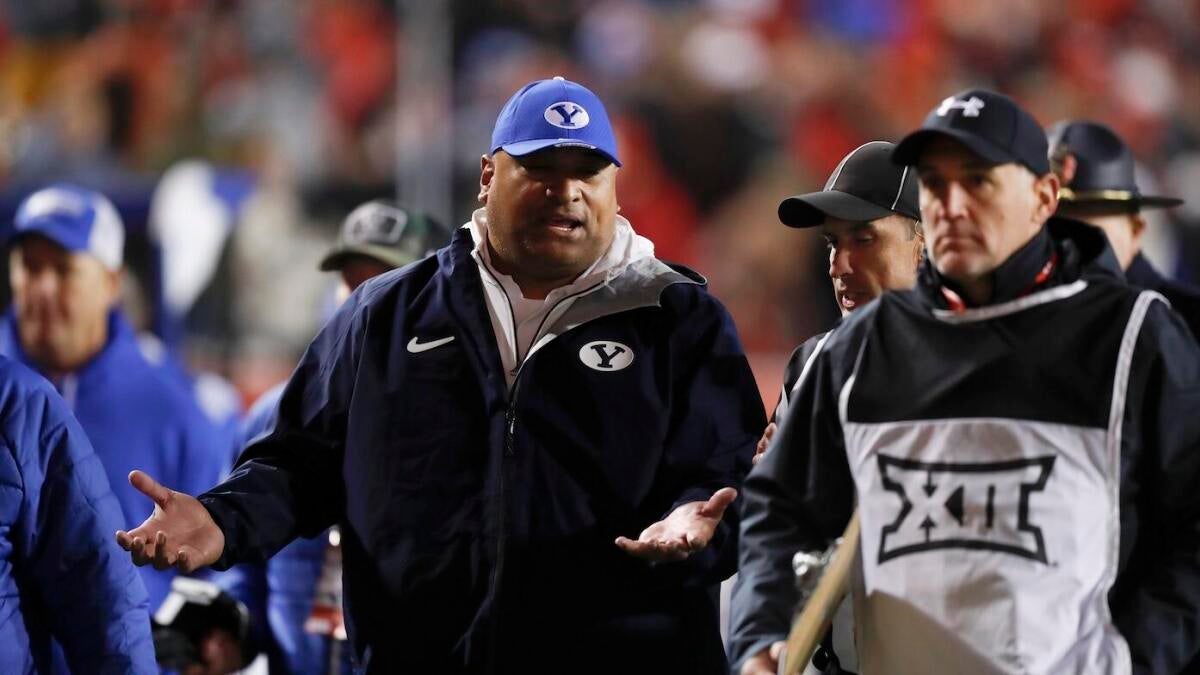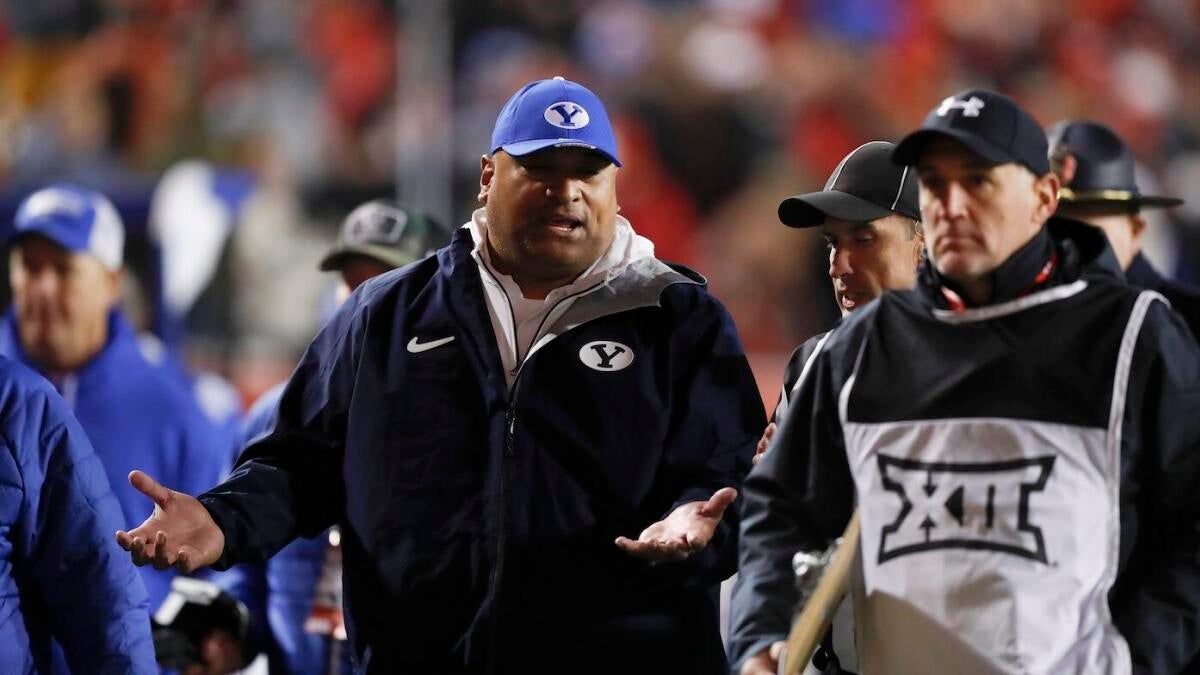The recent transfer of Jake Retzlaff from BYU has sent shockwaves through the college football world, highlighting the complexities of modern player movement and the significant impact a single decision can have on a program. Retzlaff’s journey from breakout star to the center of controversy encapsulates the tumultuous nature of college athletics, where on-field success can be swiftly overshadowed by off-field challenges.
A Promising Start and Sudden Controversy
Jake Retzlaff’s tenure at BYU began with immense promise. In 2024, he led the Cougars to an impressive 11-2 record, showcasing his dual-threat capabilities with nearly 3,000 passing yards, 20 touchdowns, and over 400 rushing yards. His performance accounted for 66% of BYU’s total offensive output, solidifying his role as the team’s cornerstone. However, this success was abruptly overshadowed by a civil lawsuit alleging sexual assault from an encounter in November 2023. Despite the lawsuit being dismissed by both parties in June 2025, the allegations and subsequent scrutiny created an environment that seemingly pushed Retzlaff toward a transfer.
The dismissal of the lawsuit did not erase the impact of the allegations on Retzlaff’s reputation and standing within the BYU program. The Honor Code, a central tenet of BYU’s culture, likely played a role in the decision-making process. The combination of legal scrutiny and potential disciplinary actions may have made it difficult for Retzlaff to continue his career at BYU, prompting his decision to seek a fresh start elsewhere.
Navigating the Transfer Portal and Eligibility
Retzlaff’s transfer, announced just two months before the 2025 season, raised immediate questions about his eligibility. Missing the NCAA transfer portal deadline typically means a player must sit out a season, but reports suggest Retzlaff has a “clear avenue” to gain immediate eligibility at his new program. This could involve a waiver based on the unique circumstances surrounding his departure from BYU, such as the off-field allegations and potential Honor Code violations.
Several Power 5 programs have expressed interest in Retzlaff, recognizing his potential to elevate their quarterback rooms. His dual-threat abilities and proven success at the collegiate level make him an attractive prospect, despite the controversy that led to his transfer. The ability to secure a waiver would allow him to contribute immediately, making him a valuable asset for any program willing to overlook his past issues.
The BYU Quarterback Void and the Road Ahead
With Retzlaff’s departure, BYU is left with a significant void at the quarterback position. The Cougars must now scramble to identify a replacement, with several players vying for the starting role during summer workouts and fall camp. The lack of a clear heir apparent creates uncertainty and pressure on the coaching staff to make the right decision. The success of the 2025 season may hinge on the ability of the new quarterback to quickly adapt to the system and lead the offense effectively.
Potential candidates for the starting role include returning players and incoming transfers, but none have the proven track record of Retzlaff. The competition will likely extend into the preseason, with the coaching staff evaluating each candidate’s readiness to take on the challenges of the Big 12. The absence of a proven starter may force BYU to adjust their offensive strategy, potentially relying more on the running game or a more conservative passing attack to compensate for the inexperience at quarterback.
Big 12 Implications and the Broader Landscape
Retzlaff’s transfer has implications that extend beyond BYU, potentially reshaping the competitive landscape of the Big 12. With Retzlaff at the helm, BYU was expected to be a formidable contender in the conference. His departure significantly diminishes their offensive firepower and raises concerns about their ability to compete for a Big 12 title. The absence of a proven quarterback may force BYU to adjust their offensive strategy, potentially making them a less explosive and predictable team.
The broader context of Retzlaff’s transfer highlights the growing influence of the transfer portal in college football. The portal has empowered players to seek new opportunities, changing the dynamics of team building. Quarterbacks, in particular, are highly sought-after commodities, and their decisions to transfer can have a dramatic impact on the fortunes of their former and future teams. Retzlaff’s saga underscores the complex interplay of factors that can influence a player’s decision to transfer, including on-field performance, off-field issues, and the pursuit of a better opportunity.
Conclusion
The transfer of Jake Retzlaff from BYU represents a significant turning point for the Cougars. A promising season derailed by controversy has led to a quarterback shakeup and uncertainty about the team’s prospects in the Big 12. As Retzlaff embarks on a new chapter in his college football career, BYU is left to grapple with the challenge of replacing a key player and navigating a rapidly evolving landscape. The resolution of the quarterback battle in Provo will undoubtedly be a key storyline to watch as the 2025 season unfolds. The broader implications of Retzlaff’s transfer highlight the complexities of modern college football, where player movement, off-field issues, and competitive dynamics all play crucial roles in shaping the sport’s future.












